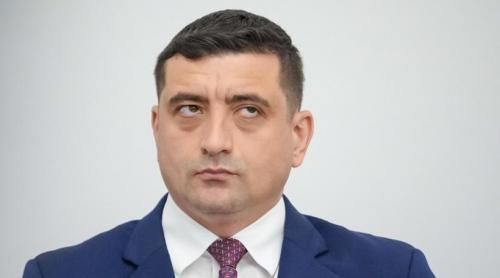I had the opportunity to interview live, Thursday evening on Antena 3 television station, former Securitate officer turned parliamentarian Ilie Merce.
He explained the relationship between the recruiting officer and his informants and also the methods used by the first to get the cooperation of the latter.
On this occasion I understood that the methods of the late Securitate
were not different from those of other intelligence services elsewhere. What made the difference was the purpose for which the methods were deployed.
For instance, blackmailing a possible source into cooperating with an intelligence service is standard procedure.
Neither the loathed Securitate nor the intelligence services of the democratic regimes use high moral grounds to get their job done.
BBC Prime broadcast last week a documentary on the MI 5, showing that the British intelligence service seeking access to the bank account of a Russian mobster forced a bank employee into submission with placing him in bed a MI 5 operative.
The compromising photos the woman took were the blackmailing material ensuring the married manâs cooperation.
So, the whole debate surrounding the former Securitate is based on a false premise: not the morality of the methods should be an issue, but the final end they were used for.
The purpose of the Securitate was to politically police the Romanian citizens, not to defend the country from outside threats, as regular intelligence services in democratic regimes do.
Therefore, if the current media debate is highlighting anything at all, than that is the mediaâs own lack of professionalism.
I published two books based on my research of the Securitate archives. One was titled the White Book of the Securitate: the 1969 to 1989 Stories of Literary and Artistic Personalities Under Its Scrutiny, published at Evenimentul Romanesc Publishing House in 2000.
The Forward notes to that book are as valid today as they were back then: the book was first of all attempting to explain to the general public the jargon used by the former Securitate, in order to ground the public debate firmly into accurate and thorough analysis.
To my dismay I notice that the public debate conducted these days lacks professionalism as much as it did back in 1996 - 2000, during another center-right government.
Most journalists taking part in this public debate, which uses mostly the television channels, are young and uninformed, hence easy to manipulate.
Thus talk is about blackmail as an immoral tool used by the Securitate or about the guilt of a whole political class, which is this way watering down the guilt of the real culprits and switching the focus elsewhere.
What we arrive at is not the necessary process of uncovering the former Securitate officers and informants, and the condemnation of the Securitate as a means of political repression.
What we arrive at is a possible halting of the process in its tracks for fear of launching blanket accusations in a sort of witch hunt.
The new manipulation surfacing these days promotes the image of the Securitate during the dictatorship of Nicolae Ceausescu as a brutal, primitive institution.
To the contrary, the Securitate of later years was rarely resorting to violence. Its methods were more perverse.
In the White Book I have explained the despicable tools deployed by the intelligence service: compromising the good name of a possible source, positively influencing it, destroying its social network to isolate it, and intoxicating it with false information were standard procedure.
I think the current manipulation of the public aims at preventing it from reaching to the uncanny similarity of the former Securitate with the current SRI.
Translated by Anca Paduraru



















